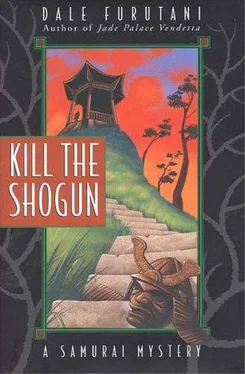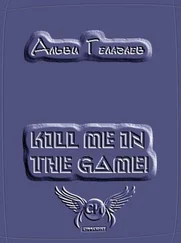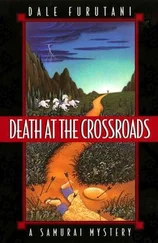Dale Furutani - Kill the Shogun
Здесь есть возможность читать онлайн «Dale Furutani - Kill the Shogun» весь текст электронной книги совершенно бесплатно (целиком полную версию без сокращений). В некоторых случаях можно слушать аудио, скачать через торрент в формате fb2 и присутствует краткое содержание. Год выпуска: 2011, ISBN: 2011, Жанр: Исторический детектив, на английском языке. Описание произведения, (предисловие) а так же отзывы посетителей доступны на портале библиотеки ЛибКат.
- Название:Kill the Shogun
- Автор:
- Жанр:
- Год:2011
- ISBN:0688158196
- Рейтинг книги:3 / 5. Голосов: 1
-
Избранное:Добавить в избранное
- Отзывы:
-
Ваша оценка:
- 60
- 1
- 2
- 3
- 4
- 5
Kill the Shogun: краткое содержание, описание и аннотация
Предлагаем к чтению аннотацию, описание, краткое содержание или предисловие (зависит от того, что написал сам автор книги «Kill the Shogun»). Если вы не нашли необходимую информацию о книге — напишите в комментариях, мы постараемся отыскать её.
Kill the Shogun — читать онлайн бесплатно полную книгу (весь текст) целиком
Ниже представлен текст книги, разбитый по страницам. Система сохранения места последней прочитанной страницы, позволяет с удобством читать онлайн бесплатно книгу «Kill the Shogun», без необходимости каждый раз заново искать на чём Вы остановились. Поставьте закладку, и сможете в любой момент перейти на страницу, на которой закончили чтение.
Интервал:
Закладка:
The bottom of a
deep well on a moonless night.
Darker still a heart.
Toyama put one hand on his sword. It was scary dealing with these people, and now that he saw the meeting place, his apprehensions unfolded like the petals of the night-blooming lotus.
The small abandoned temple was in a grove of bamboo. The roof sagged from rot and neglect, and the tall weeds grew in profusion right up to the door. A light breeze blew, lifting dried leaves and idly tossing them against the decaying walls. In the light of the half-moon, the temple looked deserted and empty, and Toyama briefly wondered if he could have gotten confused on the directions and somehow ended up at the wrong place.
Toyama lifted the reed basket covering his head to get a better look. He was disguised as a komuso , an adherent to the strange Fuke sect of Buddhism. These men wandered the countryside, wearing an inverted basket with eyeholes to mask their identity. They played the shakuhachi , the bamboo flute, as their way of asking for alms. Increasingly, samurai and ronin were converting to this sect as they sought escape from defeat and shelter in the sect’s temples. They were becoming a familiar sight on the streets of Edo, and their unusual headgear formed a perfect disguise. Since so many samurai were komuso, the disguise had the advantage of letting Toyama wear his swords as he masked his face.
Toyama was quite proud of his selection of disguise, and he was convinced that no one knew where he had gone. The guards by the side gate of his villa were surprised when he left without an entourage, and they asked him if he wanted them to accompany him. He told them no and put the hat of the komuso on. The guards exchanged sly smiles at their master’s secrecy, convinced that he was out on an amorous adventure, perhaps to visit the wife of another man.
Even with the impediment of the basket out of the way, Toyama saw no signs of life. Returning the basket to his shoulders, he carefully walked toward the temple. In his hand he carried a lantern. The flickering yellow light, smoothed by the thin paper that surrounded the lantern, allowed him to pick his way between the weeds.
He hesitated a moment at the temple door, holding the lantern out before him so the weak light could penetrate the gloom.
“Come in,” a voice said from out of the darkness. Toyama gave a start. He expected someone to be here to meet him, but he could not see where the owner of the voice was standing.
“Your light will let others know we are here.” The voice was neutral in its intonation, but the speaker was actually quite annoyed by Toyama’s hesitancy. He had seen Toyama’s face when the Lord had lifted the komuso’s hat, so he was sure who his visitor was. Even without this stupid blunder, the man waiting in the gloom of the temple would know that this man was a daimyo and not a true priest. Toyama had adopted the basketlike hat of the komuso and had even stuck a bamboo flute in his sash, but no komuso could have a silk kimono or lacquered geta sandals as fine and expensive as the ones this man wore.
At last, Toyama stepped into the temple. The air in the temple was musty and old and full of dead smells. The inside had a dirt floor and the walls were stripped bare, so Toyama could not tell what God had been worshiped there. The feeble light of the lantern made a weak circle in the center of the floor but didn’t penetrate into the gloom beyond.
The man saw Toyama kept his hand on his sword, as if this would protect him, and he smiled. If he wanted, the man could kill Toyama in a hundred ways, most of them not involving weapons. The man stepped out of the dark corner and into the light of the lantern. Toyama took a step backward.
“You wanted to speak to us,” the man said. He was dressed all in black, with tied pants and a short jacket held by a sash. Black tabi socks covered his feet, and even the hemp ties of his sandals were rubbed with ink to help them blend into shadows. A short Chinese-style sword was strapped across his back, with the hilt protruding over one shoulder where the man could reach back to draw it out. A piece of black cloth was wound around his head and face, masking his identity.
“Are you the one who gave me instructions?” Toyama asked.
The man was disgusted with this Lord’s hesitancy and stupidity, but hid his impatience. “I am the one who was sent to talk to you,” he answered.
“I… ah … I understand that you can be hired to do … ah … certain jobs…” Toyama let the sentence trail off, in a characteristic Japanese way that invited comment from the other party.
“That depends on the job.”
“I want a man killed.”
“That depends on the man.”
Toyama took a piece of paper from his sleeve and handed it to the man in black. The paper was folded into a strip and tied into a loose knot.
The man took the paper and unfolded it, shaking it open and tilting it slightly to catch the light of the lantern. He was surprised when he read what was on the paper, but a lifetime of training allowed him to hide his reaction. Through habit, he kept his eyes on the paper, because a highly trained adversary could sometimes learn much from the expression in a man’s eyes. It was unlikely that Toyama was so trained, but it could be his ineptness was simply a well-honed act.
“We know this man,” he said. “When do you want this done?”
“As soon as possible, but you must tell me first, so I’ll know in advance it’s about to happen.”
“We never tell that. We either fulfill our contract or die in the attempt. If we broadcast our intentions, it would be too easy to trap us.”
“But I want to know, so I can make preparations.”
“Then you should always be prepared, because we will not make such an announcement.”
“What is the price then?” Toyama said petulantly.
The man quoted a figure.
Toyama spluttered. “That’s outrageous!”
“As you wish.” The man started to blend back into the darkness.
“Wait!”
The man stopped.
Toyama made a counteroffer.
The man shook his head. “No. I have given you the price for this man. It will take several of us to kill him, and even then we may not be successful. The price you were given is the value of our lives if we fail. This man is an expensive one to kill.”
Frustrated, Toyama said, “Fine. If that’s the price, then I will pay it. I want this man dead. I’ll pay you when you are done.”
“No. In advance.”
“But how am I to know if you will complete your part of the bargain?”
“Do you know who we are?”
“Yes.”
“Then you know we have never failed to either complete a mission or to die trying. There is no bargaining. Those are the terms. You may take them or leave them, as you choose.”
“All right! But I didn’t bring that much money with me.”
“Have someone bring it to this temple tomorrow night. In gold. Place the gold in a cloth and leave the bundle on the temple floor. Then leave.”
“All right.”
The man looked at the sheet of paper once more. “Is this all you know about him?”
“I can describe him.”
“I said we know him. You do not have to describe him. Do you know where he is now?”
“No.”
“Then this will be a difficult job. It may take us some time. But we will not quit until we have completed the task.”
“Tell me,” Toyama said, “am I dealing with the Kogas?”
Now the man was extremely annoyed by this silly daimyo’s curiosity and lack of knowledge of how these transactions were accomplished and which questions were questions not asked. “No,” the man said, “you are dealing with me.”
“But…”
Читать дальшеИнтервал:
Закладка:
Похожие книги на «Kill the Shogun»
Представляем Вашему вниманию похожие книги на «Kill the Shogun» списком для выбора. Мы отобрали схожую по названию и смыслу литературу в надежде предоставить читателям больше вариантов отыскать новые, интересные, ещё непрочитанные произведения.
Обсуждение, отзывы о книге «Kill the Shogun» и просто собственные мнения читателей. Оставьте ваши комментарии, напишите, что Вы думаете о произведении, его смысле или главных героях. Укажите что конкретно понравилось, а что нет, и почему Вы так считаете.












